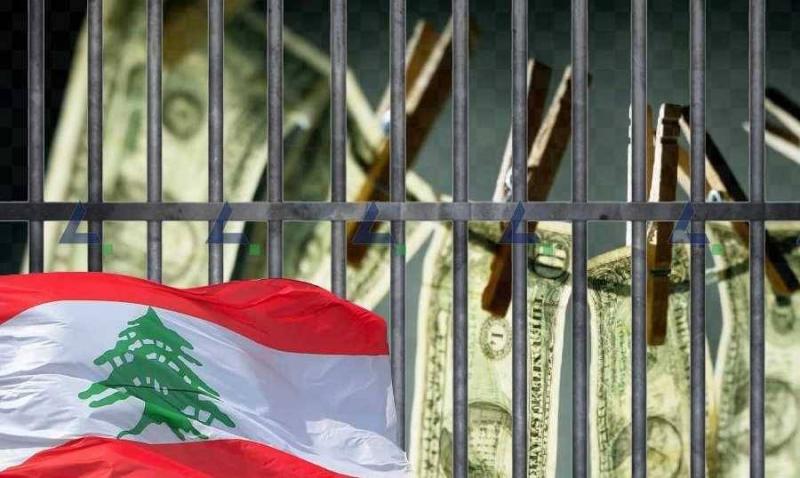At the end of April, the Financial Action Task Force (FATF) will assess the progress made by Lebanon regarding deficiencies in anti-money laundering efforts, with a final decision on gray list classification expected between July and August. However, it seems that Lebanon has made no progress so far. According to reports, acting Central Bank Governor Wassim Mansouri sent a letter to Prime Minister Najib Mikati requesting assistance from the European Union regarding the potential gray listing and how to address it. It has become almost certain that Lebanon will not escape this classification, as it has not addressed the main issue required of it: combating the cash economy.
Mansouri has also decided to preempt his upcoming visit to the United States for the Spring Meetings of the IMF and World Bank, where he has multiple pre-scheduled meetings concerning the cash economy, by issuing a statement starting from the exceptional circumstances Lebanon is experiencing to justify the difficulty in tackling the cash economy. The statement indicates that the ongoing delays in completing reform laws weaken the financial standing of the Lebanese state, the Central Bank, and the banks. He emphasizes the importance of expediting a realistic and practical plan for restructuring and reforming the banking and financial system, approving related laws, and starting negotiations with creditors, reaffirming that the Central Bank is fully prepared to do everything required by prevailing laws to accomplish this.
In this regard, Mansouri claims he is ready to do whatever is necessary, but lacks authority or jurisdiction. It requires restoring trust between banks and customers, which cannot happen without a law for bank restructuring. Therefore, transitioning from cash transactions to banking operations necessitates addressing and distributing losses, which the political forces refuse to do, as reported by "Al-Akhbar."
For a moment, Mansouri appears correct, except that he is capable of applying Law 110 (on banking reform issued in 1991) and referring banks to the Banking Control Commission, which he chairs, to make decisions regarding them. However, he will not take any step without comprehensive political backing. He also understands that this issue does not only concern his attempts to present differentiation from his predecessor, Riad Salameh, before international decision-making powers. It is no secret to them that combating the cash economy without a banking sector is nearly impossible. Like other officials and decision-makers among Lebanese political forces, they rely on the Americans to force all refusers to accept the restructuring of banks.
According to data gathered from discussions with U.S. Treasury delegations, envoy Amos Hochstein, or representatives of FATF, it was revealed that Americans refuse to exert such pressure for free. Therefore, they leave the pressure on the political forces and banks, demanding the fight against the cash economy while simultaneously maneuvering to receive compensation as part of a broader agreement focusing on silencing the support front.
Informed sources indicate that all previous attempts to curb American and FATF pressures regarding the cash economy have failed, even evident in the outcomes of the visit by the Secretary of the Special Investigation Commission of the Central Bank, Abdul Hafiz Mansour, to the United States, where he discussed what is required of Lebanon from FATF.
FATF has conducted a national assessment of money laundering and terrorist financing risks in Lebanon and noted a series of observations on the laws, sectors, and parties involved in enforcing anti-money laundering rules. All of these rules revolve around the cash economy and Hezbollah. For the organization, Lebanon's progress in some areas does not negate the reality that investigations related to money laundering contradict the threats and risks identified in the national risk assessment lists of 2019. Moreover, judicial prosecutions do not closely align with these threats and risks, especially regarding customs, smuggling crimes, tax evasion, illicit drug trafficking, and human trafficking crimes. Lebanon lacks a clear policy to identify, freeze, and seize criminal proceeds regularly.
Additionally, competent authorities have not proven their efforts to seize criminal proceeds as a political goal or as part of the criminal justice system. There is no policy or clear measures that define the priorities for recovering assets that have been retained or transferred to other jurisdictions. The report hinted that efforts in Lebanon did not include investigations regarding potential threats posed by one of the major local paramilitary groups. It also touched on know-your-customer procedures for notaries and subjecting professional syndicates and lawyers to financial compliance procedures and disclosure of the source of funds.
Regardless of the situation, in the context of a cash economy today, no one requests any declaration of the source of funds, and there are no rules to enforce this, according to "Al-Akhbar."




